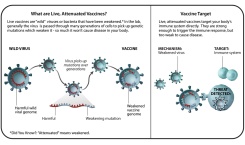Celestine
Wanjalla MD, PhD
Assistant Professor of Medicine
Dr. Celestine (Celly) Wanjalla is a physician scientist in the Division of Infectious Diseases. She earned her undergraduate degree in Biological Sciences with a distinction in research from Cornell University in Ithaca, and her MD PhD in Immunology and Microbial pathogenesis at Thomas Jefferson University in Philadelphia. She was awarded the Jefferson Graduate School Award in Translational Medicine. She completed residency and fellowship training in Internal Medicine and Infectious Diseases at VUMC. She was awarded a Vanderbilt Scholars in HIV and Heart, Lung, Blood and Sleep Research (V-SCHoLARS) K12 award during her postdoctoral training with Dr. John Koethe studying Adipose Tissue T cells and endothelial cell dysfunction in people living with HIV. Her current research seeks to comprehensively define the role of virus-specific immune cells in the pathogenesis of atherosclerotic cardiovascular disease and other diseases of aging. When she is not in the laboratory, she enjoys hiking with her family, trying out new recipes and traveling.
Cardiovascular disease remains the leading cause of death globally despite advancements in the detection and mitigation of risk factors. Though inherently multifactorial, chronic immune activation and inflammation are key mediators of atherosclerotic cardiovascular disease and other comorbidities. Persons living with HIV have twice the risk of developing cardiovascular disease. Persistent exposure to HIV antigens and co-infection with chronic herpes viruses such as CMV or hepatitis B/C contribute to chronic inflammation in PWH and appear to be important in cardiovascular disease pathogenesis.
My lab has adopted a multidisciplinary approach to i) Define virus-specific innate and adaptive immune cells in the peripheral blood and coronary arteries of persons with cardiometabolic disease using existing multiparameter flow cytometry and single-cell techniques. ii) Optimize techniques to better understand the antigenic drivers of the adaptive immune response at the tissue level. Specifically, we design studies that link the viral reservoirs, virus-specific memory T cells, and epitope discovery. iii) Apply/Implement changes in cardiovascular disease risk assessment and therapeutic approaches to improve outcomes in patients.
Major research questions:
What is the role of chronic herpes and other viral infections in the pathogenesis of CVD? Do viral antigens expressed in coronary plaques contribute to residual cardiovascular risk?
Is there synergy between viral antigens and lipids in the stimulation of adaptive immune cells within coronary plaque? Does this modify the viral epitopes?
Can we reduce the burden of residual CVD risk and improve clinical outcomes by targeting viral reservoirs and/or anti-viral cells of the immune system?
Publications on 
celestine.wanjalla@vumc.org
Virus-specific immune responses, chronic inflammation and aging









